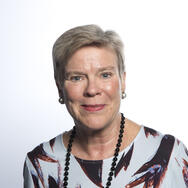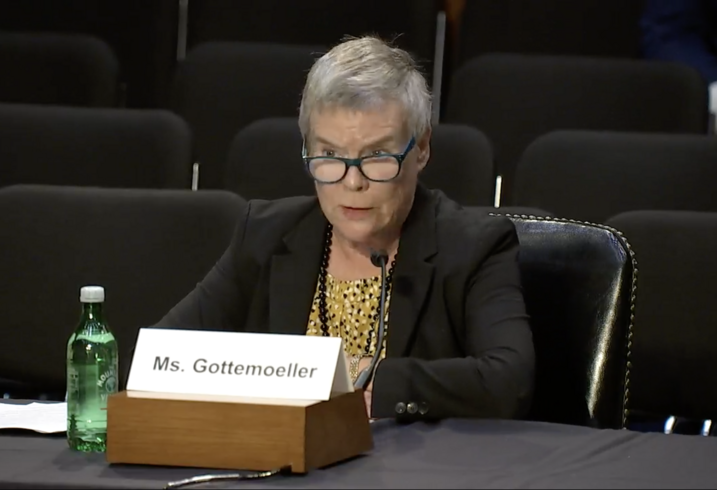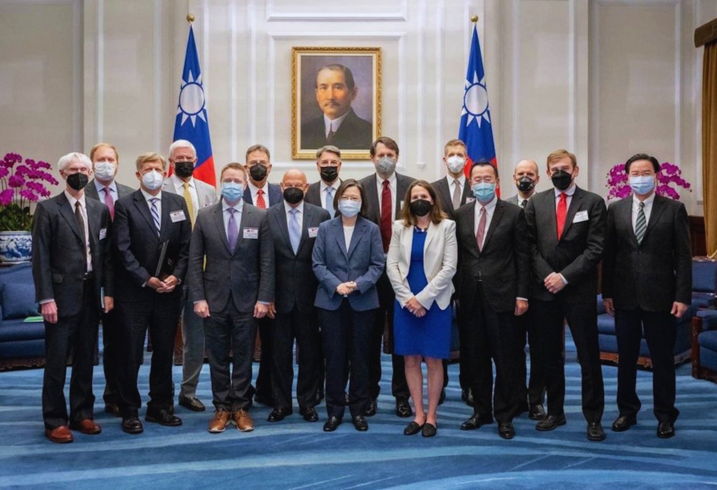The Next Tripartite Pact?
This commentary first appeared in Foreign Affairs.
North Korea has long been a source of instability, but a new development over the past year threatens to make things even worse: the country is teaming up with Russia. At a meeting in Pyongyang last July, North Korea’s defense minister, Kang Sun Nam, and his Russian counterpart, Sergei Shoigu, vowed to expand their countries’ military cooperation to “resolutely stand against” their “common enemy,” the United States. Then, at a September summit with President Vladimir Putin in Russia, the North Korean leader Kim Jong Un toasted the Kremlin’s “sacred struggle” against “a band of evil”—a reference to Western countries—and called Putin the “Korean people’s closest friend.”
The North Korean–Russian convergence goes beyond rhetoric. Russia has been propping up the Kim regime with food aid, along with fighter aircraft, surface-to-air missiles, armored vehicles, and equipment for ballistic missile production. There are signs that Russia is sharing its expertise, too. In July, North Korea conducted a test launch of a technologically sophisticated intercontinental ballistic missile, and in November, it managed to send its first military reconnaissance satellite into orbit after several failed attempts.
The transfer of critical supplies goes both ways. North Korea is sending Russia much-needed artillery shells to use in its war in Ukraine, with U.S. officials confirming in October that more than 1,000 containers of arms had arrived in Russia by ship and by train. Pyongyang’s equipment is hardly world-class—its shells have a 20 percent failure rate, whereas most advanced U.S. munitions have failure rates in the low single digits—but many of North Korea’s missiles are difficult for Ukraine to defend itself against because they are long-range, which allows Russian forces to fire from deep within their own territory, and low-tech, which helps them evade detection. North Korean military assistance could therefore be decisive in Russia’s campaign to halt Ukrainian troops’ progress. For Pyongyang, meanwhile, the arms transfer is an opportunity to test its wares in battle.
In addition to undermining U.S. and allied efforts to defend Ukraine, expanding North Korean–Russian cooperation threatens to destabilize the Korean Peninsula. On January 5, less than a week after reports emerged that Russia had launched its first North Korean–made ballistic missiles into Ukraine, North Korea fired hundreds of artillery rounds into the sea near its disputed border with South Korea. On January 14, North Korea conducted its first intermediate-range ballistic missile test of the year and formally announced that it no longer considered South Korea a “partner of reconciliation and reunification” but an enemy that had to be conquered—through nuclear war, if necessary.
As if this were not enough, China is playing a counterproductive role. Beijing’s security relationship with Russia has deepened: Russia has provided critical weapons and defense-industrial expertise to China, and the two countries are engaging in more frequent and sophisticated joint military exercises. Beijing, in effect, has sanctioned a larger Russian military role in Asia and provided the political cover and economic lifeline Putin needs to continue fighting in Ukraine. China has also shielded North Korea from international sanctions and pressure designed to force Kim to give up his nuclear weapons program. There is historical precedent for the three countries’ working together, too. During the Cold War, China, North Korea, and Russia were all committed to “opposing imperialism”—code for their anti-Western activities. Their cooperation facilitated conflict around the world, including in eastern Europe, on the Korean Peninsula, and across the Taiwan Strait.
The good news, however, is that this trilateral alignment turned out poorly for all three countries during the Cold War—and if the United States plays its cards right, it can fail this time around, too. Chinese and Soviet backing helped North Korea fight South Korea and its allies to a draw, leading to an armistice agreement in 1953, but subsequent decades of poverty and international pariah status can hardly be considered a victory for Pyongyang. As for Beijing and Moscow, cooperation soon gave way to the Sino-Soviet split and the eventual collapse of the Soviet Union. Although today’s circumstances are different, familiar signs of unease are already visible among China, North Korea, and Russia—rifts the United States can exploit.
An Unstable Triangle
China, North Korea, and the Soviet Union’s falling out over the course of the 1950s is instructive. The decade began with the two larger powers, China and the Soviet Union, committed to each other’s security and to supporting other communist countries, including North Korea. In 1950, Beijing and Moscow signed an alliance agreement vowing mutual defense in the event of an attack and pledging to coordinate their activities against the West. Both supported Kim Il Sung, the founding father of North Korea and the grandfather of Kim Jong Un, in his bid to attack South Korea the same year. When China sent its own forces into the brutal fighting on the Korean Peninsula, the Soviet Union backed the Chinese effort with military aid and expertise.
But this cooperation was not to last. After the death of the Soviet leader Joseph Stalin in 1953, his successor, Nikita Khrushchev, introduced political reforms and pursued “peaceful coexistence” with the United States. The Soviet Union’s pivot threatened to undermine the Chinese leader Mao Zedong’s domestic project, which emulated Stalin’s harsh governance. Meanwhile, Chinese attacks on Taiwanese-controlled islands, China’s 1962 border war with India, and the Great Leap Forward—Beijing’s disastrous economic and social program of that period—elicited contempt in Moscow. Mao’s personal jabs at the Soviet leadership did not help matters, either. By 1960, the Soviet Union had canceled 12 aid agreements and roughly 200 science and technology projects in China.
Back then, as now, Beijing and Moscow were revisionist great powers with limited willingness to advance the other’s ambitions. Both expected more from a partnership than mere protection. Beijing sought financial assistance for its defense-industrial base and political support to lend legitimacy to the regime. Moscow wanted to lead an ever-expanding communist bloc and to secure China’s help in undermining the United States’ position in Asia. Although the two sides shared many of the same interests, their priorities differed. And they would clash over tactics, especially when it came to dealing with third parties. Beijing and Moscow disagreed, for instance, about how to respond to Polish and Hungarian resistance against Soviet control in 1956: Mao even warned that China would support Poland if the Soviet Union dispatched troops to quell the unrest.
Chinese and Soviet leaders weighed the benefits and risks of teaming up. Great powers can use alliances to strengthen their militaries and enhance their deterrence, but forming a partnership can also provoke a potential adversary or draw one of the great powers, against its wishes, into its ally’s disputes. During the 1950s, for example, Soviet leaders grew concerned that China’s dispute with Taiwan would undermine their plans to discuss détente with the United States.
Similar stresses could now be opening fissures between China and its partners. Closer cooperation between North Korea and Russia has highlighted a fundamental tension in Russia’s relationship with China: unlike Pyongyang, Beijing has been unwilling to aid Moscow’s war effort directly. Russia’s requests for military equipment and aid from China have gone unanswered. (Russian officials have claimed that China secretly agreed to provide lethal weapons, but U.S. assessments have found no evidence that this is true.) Beijing’s official stance on the war in Ukraine is to remain neutral. It has called for de-escalation, reiterated its opposition to the use of nuclear weapons, and affirmed the sovereignty of all nations. None of China’s statements have contained explicit rebukes of Russia, but they have not expressed full-throated support, either. The fact that Russia had to turn to North Korea for aid shows how little material assistance Moscow is receiving from Beijing. In the immediate term, Russia has no choice but to take what help it can get, but eventually the discovery that its “no limits” partnership with China does, in fact, have limits may force a reckoning with the risks of relying on Beijing.
For China’s part, the North Korean–Russian relationship undermines Beijing’s influence on the Korean Peninsula. With no indication of having consulted China, Russia opted to ignore United Nations trade sanctions (which both China and Russia had signed on to) and sell North Korea the advanced military technology its leaders have long desired. Now that Russia is willing to provide benefits that China will not, Pyongyang is turning closer to Moscow, and Beijing has lost significant leverage. To be sure, China is still North Korea’s largest trading partner. And even when North Korea was almost wholly dependent on China, Kim sometimes felt free to dismiss Chinese leaders’ preferences. But Russian support gives Pyongyang a stronger hand to take action that could impede Beijing’s regional and global ambitions. For example, Beijing will not want North Korea—or Russia, for that matter—to jeopardize its attempts to unify Taiwan with mainland China. But a crisis on the Korean Peninsula could spoil China’s plans by driving the United States and its allies toward deeper defense integration, just as the North’s 1950 invasion of the South pushed the United States to rethink its security interests in the region and sign a defense pact with Taiwan in 1954.
The most damning consequence of North Korea’s military cooperation with Russia may be that it is damaging China’s broader diplomatic and security environment. An emboldened North Korea and an aggressive Russia do nothing to improve China’s image or help it compete with the United States. Nothing unites U.S. allies more than shared concerns about North Korean or Russian belligerence. And as a partner of both countries, China is expected to use its own political capital to solve the problems they cause. At a December summit with EU leaders in Beijing, for example, Chinese officials wanted to focus on long-term plans for bilateral relations and caution against a European “de-risking” strategy that threatens China’s technological ambitions and economic interests. But the European delegation instead opened the talks by urging China to leverage its economic influence over Russia “to put an end to the Russian aggression against Ukraine.”
China has long regarded a trilateral alliance among Japan, South Korea, and the United States as a critical threat to its security, even seeking guarantees from Seoul and Tokyo that they would not enter such a pact. Part of the case Beijing is making to reassure both capitals is that China is prepared to serve as the “stabilizer” of Northeast Asia—a message it repeated in a meeting with Japanese and South Korean officials after North Korea launched its spy satellite in November. At the same meeting, South Korean Foreign Minister Park Jin urged Chinese Foreign Minister Wang Yi to encourage North Korea to halt its provocations and pursue denuclearization. But China’s commitment to playing “a constructive role” could amount to little if North Korea, bolstered by Russia, does not respond to Beijing’s overtures. At a certain point, even if other countries in the region do not see China as complicit in North Korea’s bellicose actions, Japan, South Korea, and the United States are bound to make defense decisions that will be unwelcome in Beijing.
China, recognizing the danger of being grouped with North Korea and Russia, has tried to publicly distance itself from the two countries. In late January, Liu Pengyu, the spokesperson for the Chinese embassy in Washington, told Voice of America that he was “unaware” that North Korea and Russia were cooperating on military matters. China has also denied playing any role in the two countries’ recent collaboration. In line with that claim, when Moscow suggested that North Korea join Chinese-Russian naval drills in September, Beijing did not respond. The official Chinese media has also downplayed the idea of a trilateral alliance among China, North Korea, and Russia. In China’s telling, such a partnership is “concocted” by Western media to justify closer military cooperation among Japan, South Korea, and the United States and generate a Cold War mindset by framing regional politics in terms of two opposing blocs. Beijing still sees real, if limited, benefits from its relationships with North Korea and Russia, but it is clearly concerned that Moscow and Pyongyang’s actions will do China more harm than good.
Let the Chips Fall
The United States and its allies can encourage fissures in the emerging autocratic bloc, but they must proceed with caution. Erecting obstacles is the wrong approach. Taking a page from history, Washington should recognize that China, North Korea, and Russia will sabotage their triangular alignment all on their own. During the Korean War, for instance, Soviet air support for Chinese forces was not forthcoming despite promises from Moscow, and in the 1960s, the Soviet Union reneged on commitments to lend its nuclear expertise to China. Moscow’s continued reluctance to support Beijing, let alone extend security assistance, in times of crisis was a major contributor to the Sino-Soviet split.
Recently, the war in Ukraine provided a perfect opportunity for China to disappoint its partner by refusing to fully back Russia’s military campaign. But the Biden administration squandered that opportunity by threatening China with “consequences” should it assist the Russian war effort and by adding Chinese companies that it asserted were supporting the Russian military to a trade blacklist. Even without these warnings, Beijing would have been unlikely to provide significant aid. Now, however, Beijing can contain the damage to its relationship with Moscow by blaming the United States for China’s failure to help a friend. If Washington had left the issue alone or confined its threats to private channels, China and Russia’s disagreement might have snowballed into an even larger rift.
The best way for the United States to counter the Chinese-Russian alignment is by using it to rally U.S. allies and partners. Shared perceptions of a threat create a fertile environment for deepening alliances and breaking ground on new areas of defense cooperation. Such a mindset has already allowed Japan and South Korea to look past their historic animosities and work together more closely than ever before. Each country decided to reinstate the other’s preferred trade partner status last spring, and in December they resumed high-level economic talks after an eight-year hiatus. U.S. allies in Europe that were previously reluctant to push back against Beijing may also change their minds as they come to see China and Russia as a unified threat—perhaps enough to persuade them to help the United States deter Chinese aggression in Asia. China has been reluctant to support Russia’s military and political goals in Europe in part because Beijing values its economic relationships with European countries. If those countries join the United States in taking a harder line on China, Beijing may conclude that an association with Russia and its disruptive tactics comes with too high a cost.
For now, coordination between North Korea and Russia makes it harder for the United States and its allies to compel either country to leave behind its revisionist, aggressive tendencies and assume a constructive role in the international community. But if their relationship sufficiently threatens China, Beijing may choose to distance itself from both Moscow and Pyongyang. It might even go so far as to try to push North Korea and Russia apart. The United States and its allies were not the primary reason for the Sino-Soviet split during the Cold War, and they will not be the cause of the next Chinese-Russian rift—but they can make the most of the regional dynamics hastening a divide.
Read More

China, Russia, and North Korea’s New Team Is Not Built to Last












![Rose Gottemoeller [left] stands with Hillary Clinton [right] in the Treaty Room at the U.S. Department of State in Washington D.C.](https://fsi9-prod.s3.us-west-1.amazonaws.com/s3fs-public/styles/680x378/public/2022-12/gottemoeller_clinton_state_department_policy_flikr_hero.png?itok=nhZBZm70)
















